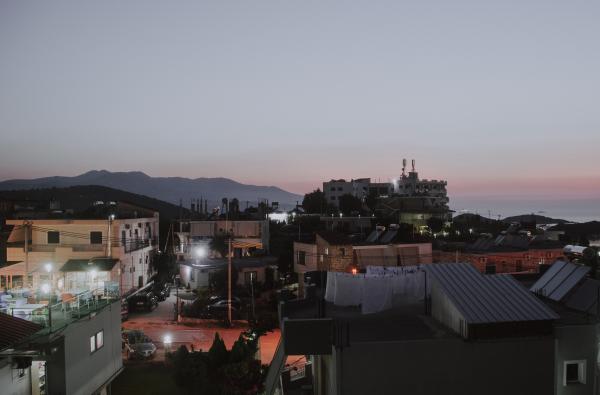
- Cooperation agreement between the bank of the European Union and the Albanian national development agency
- EUR 200,000 signed with ADF under the Economic Resilience Initiative (ERI), part of an approved EUR 3m technical assistance package
- Aim is to tap the growth potential of Northern Albania and the Adriatic coastline with a focus on environmental issues and sustainable tourism development
The European Investment Bank (EIB) and the Albanian Development Fund (ADF) have signed a EUR 200,000 cooperation agreement concerning technical assistance with the preparation of a regional investment programme in the North of Albania. This is the first step in a wider approved technical assistance programme worth up to EUR 3m to be implemented in partnership with ADF in support of the region. ADF is a national agency with 25 years’ experience in local infrastructure investment throughout Albania. It is an important partner of the EIB and has significant expertise in translating national policies into investment programmes.
The technical assistance, financed by the EIB through the Economic Resilience Initiative (ERI), concerns an area encompassing the Adriatic coastline between Shengjin and Velipoje, the shores of Lake Shkodra, the River Buna and the Koplik gateway to the Albanian Alps, and includes parts of the territories of the municipalities of Shkodra, Lezha, and Malësi e Madhe.
As part of this cooperation, the EIB will assist ADF in defining the Coastline Gate of Alps integrated tourism and urban upgrading strategy, and in evaluating the area’s natural assets and potential, as well as addressing environmental issues. This will enable the preparation of a mid and long-term capital investment plan that will complement the existing Master Plan of the Alps by improving accessibility, environmental quality and local amenities.
This partnership illustrates the EIB’s support to the Albanian authorities for sustainable development that synthesises existing plans and sectors and prioritises strategic investments.
“By helping devise a public infrastructure investment programme based upon the regional tourism potential and an in-depth analysis of existing infrastructure gaps the Bank will contribute to realising the untapped growth potential of northern Albania”, said Alessandro Bragonzi, EIB representative for Albania, Kosovo*, and North Macedonia.
“ADF in its role as regional development agency through this initiative aims to provide a strategic vision for sustainable development of the gate of Alps area that synthesizes existing plans, sectorial strategies and prior or recent strategic investments. Albanian Development Fund sees in EIB an important partner from whom has received continuous support, since many years, in achieving its mission, in support to Albanian Government goals and objectives. Through this initiative, we intend to build a comprehensive programme of investments that will respond to territorial needs and potentials, through an integrated approach of interventions, improving the attractiveness of this area, boost economic generation potential, invest in people and services as well as improve public services”, said Dritan Agolli ADF Executive Director.
*This designation is without prejudice to positions on status, and is in line with UNSCR 1244 and the ICJ Opinion on the Kosovo Independence Declaration
Notes to the editors
EIB in Albania and the Western Balkans
Since 2000, the European Investment Bank has lent more than EUR 474m to Albania, supporting transport and environmental infrastructure, health, education research and development and SMEs.
The Albanian Development Fund (ADF) is an agency established by a special law in 1993, as a social investment fund for poverty alleviation in the country. From an agency established with the mission to alleviate poverty in rural areas of Albania through small interventions after the fall of the communist regime, ADF transformed into the main lever of development. ADF applies regional approaches and implements integrated and complex projects ensuring sustainable social and economic development as well as creation of successful models and translate them into results with a long-term impact on citizens’ welfare. In the recent years, the ADF has taken an increasingly significant role in regional development implementation reform.
Economic Resilience Initiative
Launched in 2016, ERI is part of the European Union’s response to the challenges in the Southern Neighbourhood and Western Balkans, such as forced displacement and migration, economic downturns, political crises, droughts and flooding. ERI creates jobs and economic growth in the region by investing in key infrastructure and in private sector development. It may also help migration flows. ERI offers a package of loans and innovative financial products, while blending funds from the donor community with EIB financing. The initiative is implemented in close cooperation with EU countries, the European Commission and other partners. Croatia, Italy, Lithuania, Luxembourg, Poland, Slovakia, Slovenia and the United Kingdom were the first EU countries to contribute to ERI.
Under ERI, more than 50 projects have been approved for a total of EUR 4.92bn worth of investment. The initiative is expected to provide a total of EUR 6bn in extra financing.